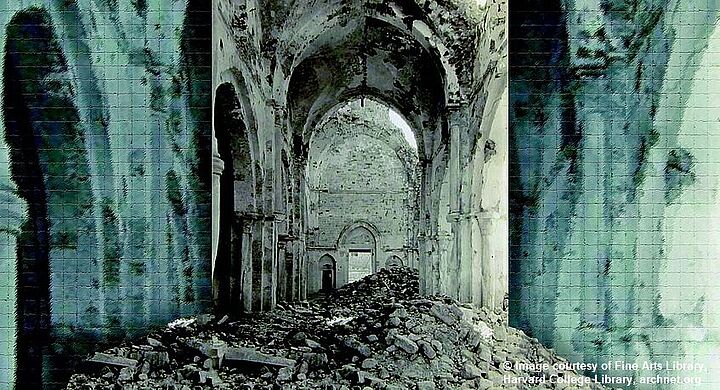Mittwoch, 06. November 2024, 17:00 - 18:30 iCal
Ringvorlesung Turkologie Wintersemester 2024/25
Cultural Heritage in the Middle East and Central Asia: Conservation and Destruction
October 9th, 2024 - January 22th, 2025, 5PM - 6:30PM
Institut für Orienatlistik, Hörsaal
Spitalgasse 2, Hof 4.1 (Campus Universität Wien), A-1090 Wien
Hybrider Event (an einem physischen Ort und online)
No State, no NGOs: Reflection on Families' Approach in Converting Traditional Houses into Local Museums in Palestine
Mazen Owaisi and Jamal Barghouth (Queen’s University Belfast)
Abstract
What benefits can a family-focused museum approach offer in addressing the everyday challenges faced by local communities in Palestine? If state-funded museums are usually located in urban metropoles and subscribe to universalised approaches to museum practice, what spatiality and regime of values do family-based museums embrace? What memory do they pertain to remember? What histories, written and oral, do they present? What materiality do they exhibit in assembling their family museums? In answering this question, this article explores how families’ commitment to protecting and managing cultural heritage can turn their houses into new spatiotemporal spaces: As family museums, they open up the possibilities to restore affection, knowledge, experience, living legacy, success, and doubt in families' experience of preserving heritage outside the realm of quasi-state apparatus like the Palestinian National Authority (PNA) and NGOs. It is through the reclaiming of and epistemological accreditation of this agency that families restore their silenced voices. This article intends to implement a shift in how local knowledge is sourced, shared, and represented by exploring the relationship between family and knowledge in a context of occupation. It examines how family-generated knowledge can inform and shape our understanding of the world and can be a powerful tool for preserving, rehabilitating and vindicating cultural heritage under the Israeli colonial regime.
Bio
Mazen Iwaisi has recently earned his PhD from Queen's University Belfast - 25 University Square, Belfast. BT7 1NN. UK - where he researched the concept of archaeo-politics in the making of the Palestinian National Spatial Plan (PNSP)—his research centres on archaeology and cultural heritage and how they relate to spatial and urban planning. Currently, he is leading a project in collaboration with the Palestinian Department of Antiquities, which focuses on re-examining the landscape of his village, Al-Lubban Ash-Sharqiya, in Palestine. The village's landscape is a place of six archaeological sites dating back to the Bronze Age. One of the main themes of this project is revising the spatiotemporality of Khan (caravansary) Al-Lubban, which is currently under the threat of confiscation by Israeli settlers driven by fundamental biblical claims. Additionally, at the heart of this project is the ongoing restoration of his traditional family house, which will be used as a local museum and visitor centre to serve the area. Iwaisi has also completed another article (in press) that maps out family-based museums in Palestine created and funded outside the realm of the state and NGOs. This project is a precursor to a larger project that will map out local museums in the Arab world.
Zur Webseite der Veranstaltung
Veranstalter
Kontakt
Ayse Dilsiz Hartmuth
Institut für Orientalistik
+43-1-4277-43405
ayse.dilsiz.hartmuth@univie.ac.at
Erstellt am Donnerstag, 19. September 2024, 11:53
Letzte Änderung am Mittwoch, 23. Oktober 2024, 10:27

